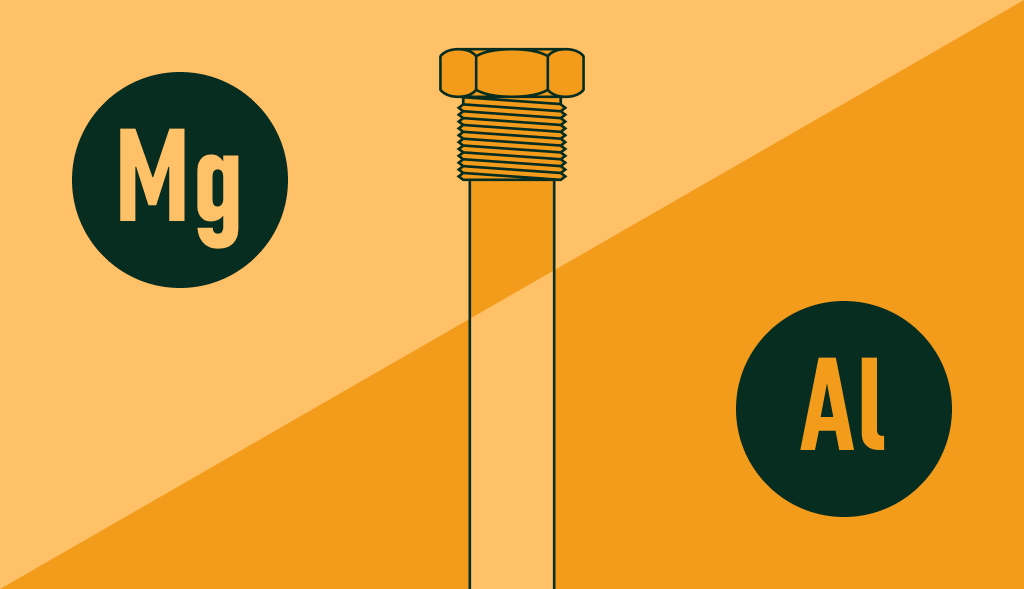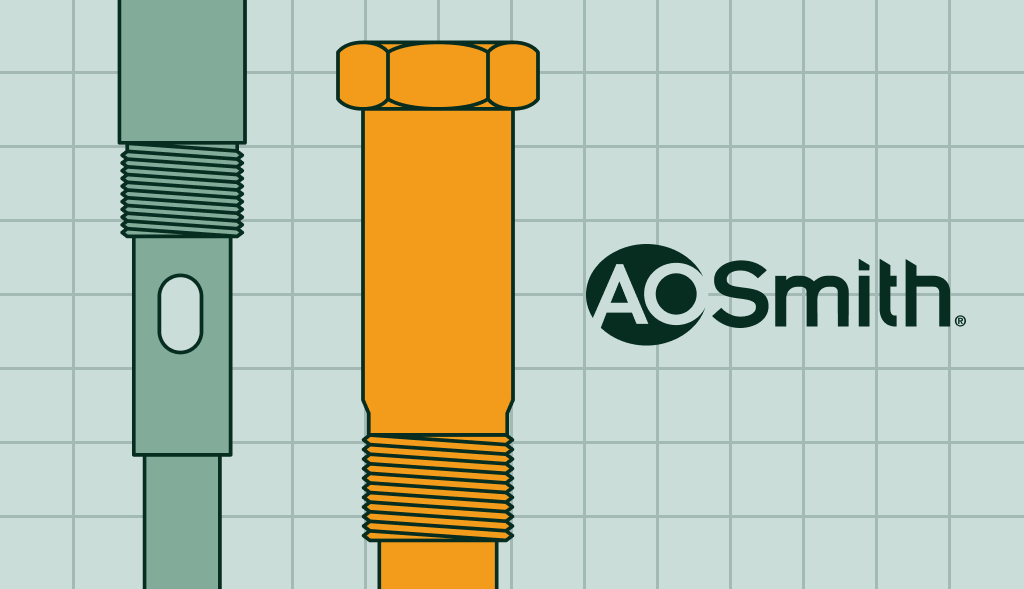Aluminum vs Magnesium Anode Rods: Understanding the Differences

Water heaters are essential in most households, providing hot water for various daily needs. A crucial component of water heaters is the anode rod, vital in preventing corrosion. Although a powered anode rod is usually a better option, understanding the differences between aluminum and magnesium anode rods can help you decide which type of sacrificial anode rod may be best for your water heater.
Main Differences Between Aluminum and Magnesium Anode Rods
The main difference between aluminum and magnesium anode rods is their performance and durability in different water conditions. Magnesium rods are more effective in soft water but have a shorter lifespan. In contrast, aluminum anode rods perform better in hard water and typically last longer.
Lifespan and Effectiveness
When comparing aluminum anode rods vs magnesium, magnesium rods offer better protection and are more effective in preventing corrosion. However, aluminum rods typically last longer due to their slower depletion rate. The difference between aluminum and magnesium anode rods in terms of lifespan and effectiveness can influence your choice based on your water heater’s needs.
Impact on Water Quality
Magnesium rods can improve water quality by reducing odors and providing a fresher taste. Aluminum rods, while effective, can sometimes contribute to a metallic taste and sulfur smell in the water. This is a key consideration when deciding between aluminum or magnesium.
Compatibility with Water Heaters
Magnesium rods are ideal for newer water heaters and those in areas with soft water. Aluminum rods are better suited for older water heaters or areas with hard water, where their durability can be more advantageous. Understanding the compatibility of water heater anode rod aluminum vs magnesium is crucial for optimal performance.
What is an Aluminum Anode Rod?
Composition and Characteristics
An aluminum anode rod is primarily aluminum, sometimes combined with zinc and tin. These rods are known for their durability and corrosion resistance, making them popular for water heaters. The composition of aluminum anode rods for water heaters ensures they last longer and are more resistant to the harsh conditions inside the tank.
Common Uses
Aluminum anode rods are often used in areas with hard water containing high mineral levels. They are also common in older water heaters and those experiencing frequent anode rod depletion. The aluminum anode rod is effective in such environments because it can withstand mineral build-up better than other materials.
What is a Magnesium Anode Rod?
Composition and Characteristics
A magnesium anode rod is composed of magnesium, which is more reactive than aluminum. This increased reactivity allows magnesium rods to offer better protection against corrosion, as they more effectively attract corrosive elements away from the tank lining. The magnesium rod in hot water heaters provides superior protection and enhances water quality.
Common Uses
Magnesium anode rods are typically used in areas with soft water with lower mineral content. They are also preferred in newer water heaters where water quality is a significant concern. The magnesium anode rod for water heaters is often recommended for residential water heaters and RV water heaters due to its effectiveness.
Where Each Anode Rod is Best Used
Between aluminum and magnesium, there may be some performance differences depending on the material of the anode and the location it’s being used. However, a powered anode rod generally outperforms both aluminum and magnesium in most residential and commercial uses.
Best Anode Rod for Well Water
Aluminum anode rods are often recommended for well water systems due to their durability and ability to handle high mineral content. The anode rod for well water should withstand the specific conditions in well water systems.
Best Anode Rod for RV Water Heaters
Magnesium anode rods are usually preferred in RV water heaters because they offer better protection in smaller tanks and can improve water quality, which is crucial in limited spaces. The best anode rod for RV water heaters ensures durability and water quality.
Best Anode Rod for Residential Water Heaters
The choice between aluminum or magnesium anode rods for residential water heaters depends on the local water quality. Magnesium rods are better for areas with soft water, while aluminum rods are ideal for hard water areas. The best water heater anode rod will depend on the specific conditions of your home’s water supply.
Why Switching to a Powered Anode Rod May Be Better
Advantages of Powered Anode Rods
Powered anode rods are a modern alternative that uses electricity to prevent corrosion. They offer several advantages, including a longer lifespan, improved water quality, and minimal maintenance requirements. They can be a superior choice over traditional aluminum and magnesium rods.
When to Consider Switching
Consider switching to a powered anode rod if you experience frequent anode rod depletion, have persistent water quality issues, or want a low-maintenance solution. While the initial cost is higher, the long-term benefits and reduced maintenance can make it a worthwhile investment.
Conclusion
Choosing between aluminum and magnesium anode rods depends on your needs and water quality. Magnesium rods offer better protection and water quality, while aluminum rods are more durable and ideal for hard water. Powered anode rods are an excellent option for those seeking a long-term, low-maintenance solution. Evaluate your water type and heater specifications to make an informed decision that ensures the longevity and efficiency of your water heater.
Frequently Asked Questions
A magnesium anode rod is a water heater component made of magnesium, used to prevent corrosion by attracting corrosive elements away from the tank lining. The magnesium anode rod for water heaters is highly effective in soft water conditions.
An aluminum anode rod is made primarily of aluminum and is used in water heaters to prevent corrosion, particularly in areas with hard water. Aluminum anode rods for water heaters are known for their durability.
The main difference is in their composition and reactivity. Magnesium rods are more reactive and offer better corrosion protection and water quality, while aluminum rods are more durable and suitable for hard water areas.
Blog
AO Smith* Water Heaters: A Comprehensive Guide
Regarding water heaters, AO Smith is a trusted name in the industry. With a range of products designed to meet various needs, AO Smith offers […]
The Ultimate Guide to Heat Pump Water Heaters: Models, Costs, and Comparisons
Understanding Heat Pump Water Heaters Heat pump water heaters, also known as hybrid heat pump water heaters or heat pump hot water heaters, are popular […]

